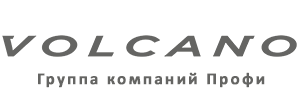- Golden Jubilee House Addresses Emerging Economic Concerns amidst breaking news in ghana today, signaling potential policy adjustments.
- Understanding the Current Economic Challenges
- Government Responses and Policy Adjustments
- Fiscal Consolidation Measures
- Monetary Policy Interventions
- The Role of External Factors
- Prospects for Economic Recovery
- Diversification of the Economy
- Regional Integration and Trade
Golden Jubilee House Addresses Emerging Economic Concerns amidst breaking news in ghana today, signaling potential policy adjustments.
The current economic landscape in Ghana is a focal point of attention, with recent developments prompting significant discussion and analysis. Amidst the breaking news in ghana today, the Golden Jubilee House, the official residence and principal workplace of the President of Ghana, is actively addressing emerging economic concerns. These concerns range from rising inflation and a depreciating currency to increasing public debt and its impact on the livelihoods of ordinary citizens. The government’s response is crucial for maintaining economic stability and fostering sustainable growth, and signals potential policy adjustments are being carefully considered.
The situation demands a comprehensive approach that balances fiscal discipline with the need to protect vulnerable populations. Discussions are underway regarding potential adjustments to the national budget, including expenditure cuts and revenue enhancement measures. The Bank of Ghana is also expected to play a vital role in managing inflation through monetary policy interventions. The government has emphasized its commitment to transparency and accountability in its economic management.
Understanding the Current Economic Challenges
Ghana’s economy, while traditionally strong in sectors like cocoa, gold, and oil, has faced considerable headwinds in recent times. Global economic shocks, exacerbated by the COVID-19 pandemic and the ongoing conflict in Ukraine, have contributed to inflationary pressures and supply chain disruptions. The increase in global interest rates has also made it more expensive for Ghana to service its debt, further straining the country’s fiscal situation. This situation has led to concerns about debt sustainability and the potential for economic instability.
Specifically, the cedi’s depreciation against major currencies has significantly increased the cost of imports, fueling inflation and impacting businesses. The rising cost of living is placing an increasing burden on households, especially those with limited financial resources. Addressing these challenges requires a multifaceted strategy that tackles both short-term and long-term economic vulnerabilities. To illustrate some of the key indicators.
| Economic Indicator | Current Value (October 2024) | Previous Value (September 2024) |
|---|---|---|
| Inflation Rate | 31.2% | 30.9% |
| GDP Growth Rate | 3.1% | 3.3% |
| Exchange Rate (GHS/USD) | 12.50 | 12.10 |
| Public Debt to GDP Ratio | 82.5% | 81.8% |
Government Responses and Policy Adjustments
The government has implemented several measures to mitigate the economic challenges. These include austerity measures aimed at reducing government spending and increasing revenue collection. Negotiations with the International Monetary Fund (IMF) are ongoing, with the aim of securing financial assistance to support the country’s economic recovery. The government has also expressed its commitment to structural reforms to improve the business environment and attract foreign investment.
These reforms encompass measures to enhance revenue mobilization, streamline public procurement processes, and improve governance. The government is also focusing on diversifying the economy and promoting value addition in key sectors such as agriculture and manufacturing. These are attempts to build resilience against external shocks and foster sustainable economic growth.
Fiscal Consolidation Measures
The government’s fiscal consolidation measures are focused on reducing the budget deficit and stabilizing public debt. These measures involve streamlining government expenditure by cutting down on non-essential spending, such as travel and entertainment allowances, and renegotiating contracts with suppliers. In addition, the government is implementing a new tax regime that aims to increase revenue collection from various sources, including corporate taxes and value-added tax (VAT). However, these measures have been met with some criticism, with concerns raised about their potential impact on economic growth and social welfare. The government hopes to demonstrate fiscal prudence and restore investor confidence.
Monetary Policy Interventions
The Bank of Ghana has been actively using monetary policy tools to address inflationary pressures and stabilize the exchange rate. The central bank has increased the policy rate several times to curb inflation and reduce demand. It has also implemented foreign exchange interventions to support the cedi and prevent further depreciation. These interventions have had a limited impact, but the Bank of Ghana remains committed to maintaining price stability and ensuring financial stability. Several factors influence the effectiveness of these interventions, including global economic conditions and investor sentiment.
The Role of External Factors
Ghana’s economic situation is not solely determined by domestic factors. Global economic conditions and external shocks play a significant role in shaping the country’s economic performance. The COVID-19 pandemic disrupted global supply chains, leading to inflationary pressures and reduced demand for Ghanaian exports. The conflict in Ukraine has further exacerbated these challenges, driving up energy prices and food costs. High global interest rates have contributed to rising debt service costs.
These external factors require a coordinated response from the government and international partners. Collaboration with the IMF and other multilateral institutions is essential for securing financial assistance and implementing effective economic reforms. Furthermore, strengthening regional cooperation and promoting trade within Africa can help reduce vulnerability to external shocks. Here is a breakdown of key external influences:
- Global Commodity Prices: Fluctuations in the prices of cocoa, gold, and oil significantly impact Ghana’s export revenues.
- International Interest Rates: Rising interest rates increase the cost of servicing Ghana’s external debt.
- Geopolitical Stability: Global conflicts and political instability can disrupt trade and investment flows.
- Climate Change: Changing weather patterns can affect agricultural production and increase the risk of natural disasters.
Prospects for Economic Recovery
Despite the current challenges, there are reasons for optimism about Ghana’s economic prospects. The country has a strong track record of sustained economic growth and political stability. The government’s commitment to implementing economic reforms and diversifying the economy is a positive sign. The successful implementation of the IMF program will be crucial for restoring investor confidence. Continued investment in infrastructure, education, and healthcare will support long-term sustainable growth.
Furthermore, Ghana’s growing population and young workforce present significant opportunities for economic development. The country can leverage its human capital to drive innovation and growth in sectors such as technology, agribusiness, and tourism. However, realizing this potential requires addressing structural challenges such as inadequate infrastructure, skills gaps, and institutional weaknesses. Below is a summary of projected growth rates for key sectors.
- Agriculture: Projected growth of 4.5% in 2025.
- Industry: Projected growth of 5.0% in 2025.
- Services: Projected growth of 4.0% in 2025.
- Overall GDP: Projected growth of 4.2% in 2025.
Diversification of the Economy
The government is prioritizing the diversification of the economy beyond the traditional reliance on cocoa, gold, and oil. This involves promoting the development of new sectors such as manufacturing, tourism, and information technology. Investments are being made in infrastructure, skills development, and business environment reforms to attract foreign investment and stimulate economic growth. A key focus is on encouraging value addition within the agriculture sector, processing raw materials locally to create more jobs and increase export earnings. This strategy aims to make the economy more resilient to external shocks and reduce its vulnerability to commodity price fluctuations.
Regional Integration and Trade
Ghana is actively promoting regional integration and increased trade within Africa, particularly through its participation in the African Continental Free Trade Area (AfCFTA). The AfCFTA has the potential to boost intra-African trade, create new jobs, and accelerate economic growth across the continent. The government is working to improve trade infrastructure, reduce non-tariff barriers, and streamline customs procedures to facilitate trade. Harnessing the full benefits of the AfCFTA will require sustained commitment from all member states and significant investments in regional infrastructure.
| Sector | Current Contribution to GDP | Target Contribution by 2030 |
|---|---|---|
| Agriculture | 20% | 25% |
| Manufacturing | 9% | 15% |
| Tourism | 3.4% | 8% |
| Information Technology | 1.5% | 5% |



 AC серия
AC серия
 Электрические тепловые завесы Wing White Белые
Электрические тепловые завесы Wing White Белые Водяные тепловые завесы WING White Белые
Водяные тепловые завесы WING White Белые Тепловые завесы Wing Dark Черные
Тепловые завесы Wing Dark Черные Wing PRO тепловые завесы
Wing PRO тепловые завесы